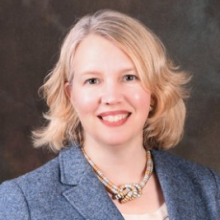An even dozen members from Allegan, Barry, Ionia, Kent and Ottawa counties convened in Allendale June 9 for the District 4 Policy Development Kickoff.
Hosted at the Ottawa County Farm Bureau office, the session was proctored by District 4 Director Jeff Sandborn and a trio of MFB staffers: Policy Grassroots Policy Outreach Specialist Emily Reinart, West Regional Manager Lori Schrauben and Economist Loren Koeman.
The assembled policy group opened with a far-reaching open-forum conversation encompassing international trade policy, the scarcity of American-made products — not to mention American workers — transportation funding and commercial drivers’ licenses.
The first topic to get a deeper dive was the Michigan Agriculture Environmental Assurance Program (MAEAP), specifically its state oversight and funding, benefits and other compensation for MAEAP technicians, the field staffers who administer the program on farms statewide.
Probably the most time was spent discussing ranked-choice voting, tapped by MFB staff as one of this year’s nine top emerging issues. Not surprisingly, the divisive concept polarized even the small group in Allendale.
“I’m just very unenthused about the two-party system,” said Becky Huttenga, Ottawa County’s agriculture and economic resources coordinator. “I find ranked-choice voting appealing and would love for someone to tell me the negatives.
“Our ugly two-party system is broken,” Huttenga said, and ranked-choice voting could help de-polarize the electorate by eroding the role party labels play in filling public offices.
Opponents to the idea feel the alternative voting scheme could disproportionately advantage “dark-horse” candidates.
Both sides agreed more voter education is warranted.
“Members are rabidly consuming this kind of information in both Farm Gate and Michigan Farm News,” said Marc Erffmeyer, a member of Allegan County Farm Bureau’s policy development committee.
Several other members present chimed in suggesting voter-education programming should be incorporated into MFB’s Young Farmer Leaders Conference and other state-level functions.
Taking the education component a step further, Kent County member Emily Kropf suggested boosting outreach to the countless ag-industry workers who came into the sector without a farm background.
Another emerging issue — the prospect of Michigan staging another Constitutional Convention in the near future — inspired a healthy discussion on the event’s dynamics, and some healthy skepticism about its necessity.
Even without a consensus on those facets, the conversation was earnest enough to spark the group’s first draft at a policy proposal, urging agriculture to assert a vocal presence in the event another Constitutional Convention does come to pass.
“Farm Bureau better be on board, because Farm Bureau helps everyone in the state,” exclaimed Ottawa County leader John VanderKooi.
Other topics addressed included farmland preservation efforts and the pro’s and con’s of local control, especially regarding common land-use questions about energy project siting and ag building setbacks.
“The best thing you can do to preserve farmland is to make farming more profitable,” Director Sandborn quipped as the topic, and the meeting as a whole, drew to a close.
With that those gathered were encouraged to continue similar discussions back home with their own county Farm Bureau leaders and policy teams.
“Thanks everyone, I learned a lot today,” Sandborn finished. “That’s why I love these meetings.”
Share Story
Article Tags


